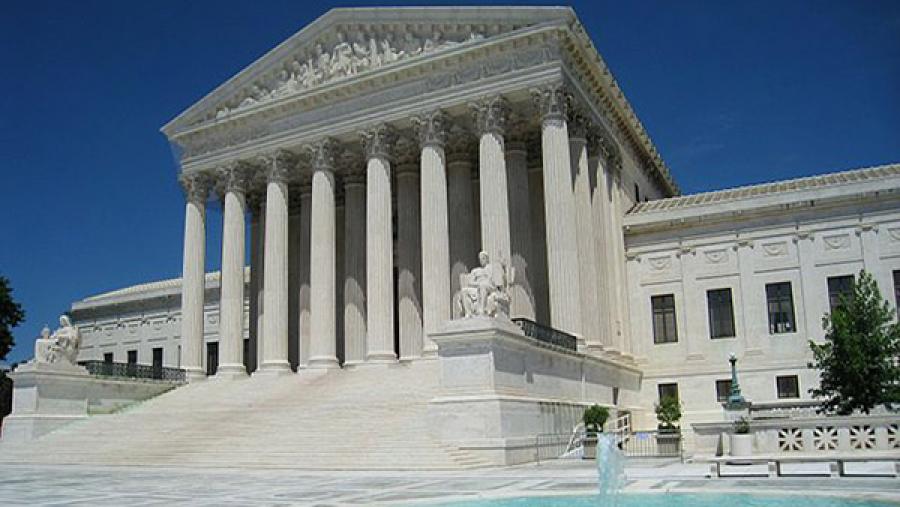Submitted by Mary Bottari on

With only weeks left in the election and the first debate taking place this evening, the U.S. Supreme Court put a halt to the implementation of voter ID in Wisconsin for this election cycle.
Voting rights advocates were jubilant, "This is wonderful news and a victory for voters in Wisconsin," said Andrea Kaminsky, executive director of Wisconsin's League of Women Voters.
Kaminsky and other advocates had challenged Wisconsin's voter ID law in the courts. Voter ID laws swept the nation after President Obama was elected in 2008 with huge voter turnout in black communities and on college campuses. The American Legislative Exchange Counsel (ALEC) and its member politicians helped spread the voter suppression laws, but ALEC subsequently attempted to distance itself from its model Voter ID Act.
In Wisconsin, where the governor is a former member of ALEC and 48 legislators are current members, multiple bills restricting voting have been proposed, debated and signed into law. Wisconsin's voter ID law was passed in 2011, but was put on hold by multiple state court rulings. In April 2014, Federal Judge Lynn Adelman ruled that the law was a violation of the federal Voting Rights Act because it threatened to disenfranchise some 300,000 Wisconsinites without proper ID, when there was little evidence of voter fraud in the state.
In September, after absentee ballots had already gone out the door with no provision for the voters to present identification, the Seventh U.S. Circuit Court of Appeals overturned Adelman putting voter ID in effect for November's election. The Wisconsin elections board asked for a $460,000 emergency appropriation to implement the decision and educate voters, but the legislature declined to take up its request.
The Advancement Project and ACLU argued that the state would need to issue 6,000 IDs per day to protect the right to vote. Yet two-thirds of the state's Department of Motor Vehicles offices are only open part-time, and just one is open on Saturday, making it exceptionally difficult for working people to get an ID or to drive a friend or family member who doesn't have one.
Now the U.S. Supreme Court has ruled 6-3 that voter ID should be stayed in Wisconsin for this election cycle. "Clearly there was not enough time for election officials to educate voters, prepare new materials and implement the law in the short time before the November 4 election," said Kaminsky.
Wisconsin's War on Voting
Even though the ruling by the nation's highest court should settle the matter for this election cycle, the state's Attorney General, JB Van Hollen, continued to sow confusion: "We will be exploring alternatives to address the courts concern and have voter ID on election day."
Voter ID was only one way the Wisconsin GOP has tried to restrict voting in the state. The legislature engaged in highly partisan redistricting, changed election dates to limit student voting in primaries, passed a law limiting early voting, and recently Assembly Speaker Robin Vos and other ALEC-tied legislative leaders unsuccessfully sued over the ballot design they had previously approved. At the same time, Speaker Vos, has been pounding the nonpartisan elections board for its role in initiating a "John Doe" criminal probe into Governor Walker's campaign and alleged criminal coordination with dark money issue ad groups like Wisconsin Club for Growth. The elections board is headed by a group of nonpartisan retired judges, but the legislature is threatening to "reform" the board by re-instituting partisan political appointees, a recipe for gridlock.
"Wisconsin's law, considered one of the strictest in the nation, is the centerpiece of the Walker administration's war on voting, and aims to stifle the voices of senior citizens, low-income and minority voters, and students at the ballot box," said Lisa Subeck, a Madison City Council member. "The Supreme Court has put the rule of law ahead of the Scott Walker's political gamesmanship. [The court's] decision ensures that the right to vote in Wisconsin's upcoming gubernatorial election will not be infringed upon by an unfair and unconstitutional voter ID law. And I fully expect that Wisconsin voters are now more galvanized than ever to put an end to Walker's war on voting by making their voices heard in the voting booth on election day."
In an unrelated decision, a U.S. District Judge in Texas also ruled yesterday that that state's voter ID law amounted to an "unconstitutional poll tax."
Debate Tonight October 10: The issue of voter ID and the Walker administration's response will no doubt be a focus of tonight's debate between Governor Scott Walker and challenger Mary Burke. The debate will air on Wisconsin Public Television tonight at 7 p.m. and on Wisconsin Public Radio. Find local listings here.

